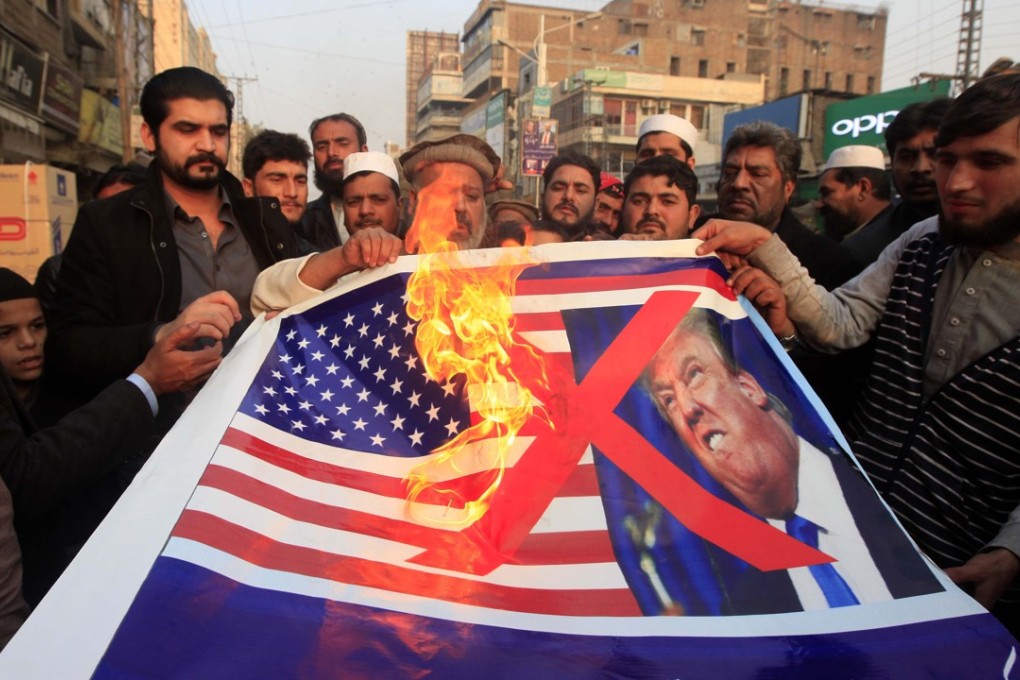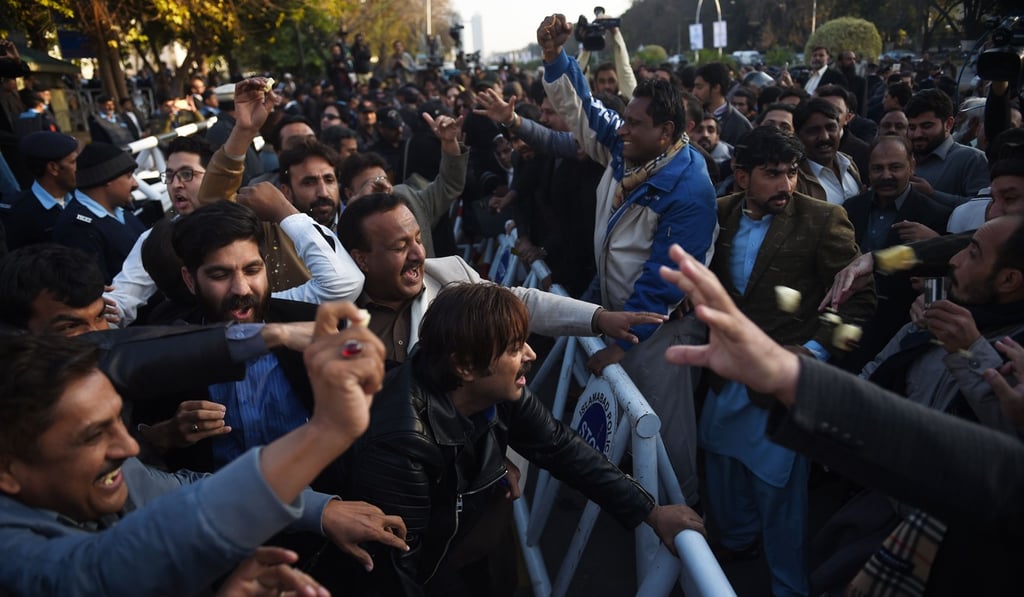How Trump’s reckless tweets could shake Pakistan’s fragile stability
Shahid Javed Burki says contrary to Trump’s assertions, Pakistan’s slow but steady progress in combating terrorism and strengthening democratic institutions is a possible model for Muslim-majority countries

Like his sabre-rattling towards North Korea or his unilateral decision to recognise Jerusalem as the capital of Israel, Trump’s attacks on Pakistan may play well with his base. But they will also have serious repercussions on Pakistan, where a number of shocks in the second half of 2017 have destabilised the country politically. And if Pakistan stumbles, the consequences will be felt across South Asia and in other parts of the Muslim world, where a functioning political system in Pakistan could serve as a valuable model.
Can they be friends? ‘Lunatic’ Donald Trump tweets about ‘short and fat’ Kim after North Korea hurls insult
The roughly 50 Muslim-majority countries stretching from Bangladesh to Morocco have largely struggled to develop politically. Under President Recep Tayyip Erdogan, Turkey has been slipping towards authoritarian rule. Bangladesh, too, seems to be turning into a one-party system, after having made notable headway, particularly on the economic front. Now Pakistan – possibly the region’s best remaining hope – is also facing potentially disruptive setbacks.
Contrary to Trump’s accusations, Pakistan has made steady, albeit slow, progress over the past decade, both in combating terrorism and in consolidating democratic institutions. That progress began in 2007, when a group of lawyers initiated a mass protest movement in response to an unconstitutional decision by Pervez Musharraf, Pakistan’s fourth military president, to suspend the chief justice of the Supreme Court. The movement, backed by several political parties, forced Musharraf to step down in 2008, to avoid impeachment.
In the subsequent general election, competitive politics came to the country with the Pakistan Peoples Party winning enough seats in the national assembly to form a solid government while the Pakistan Muslim League (Nawaz) gained control of the provincial assembly in Punjab, the country’s largest province. When the Pakistan Muslim League (Nawaz), led by Prime Minister Nawaz Sharif, won the next general election, the transfer of power occurred peacefully, another milestone for Pakistan.
